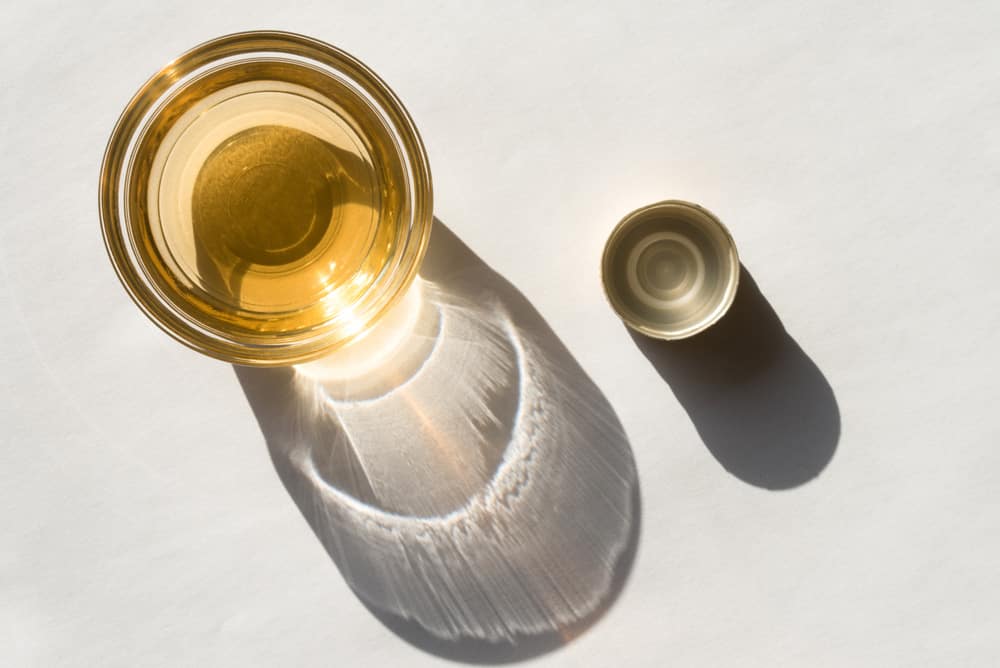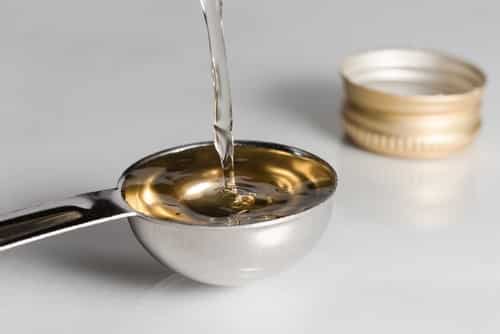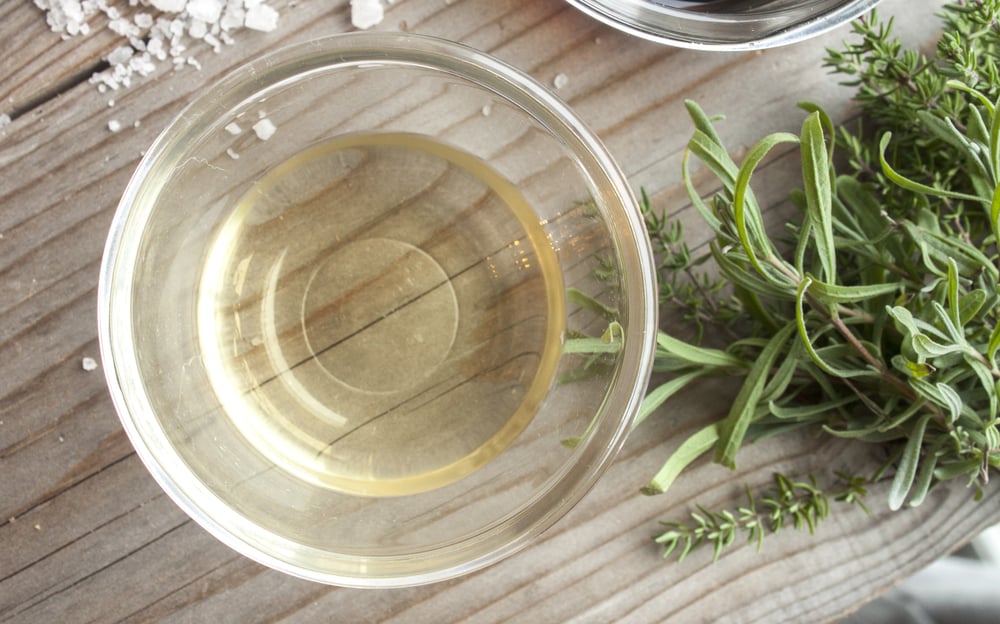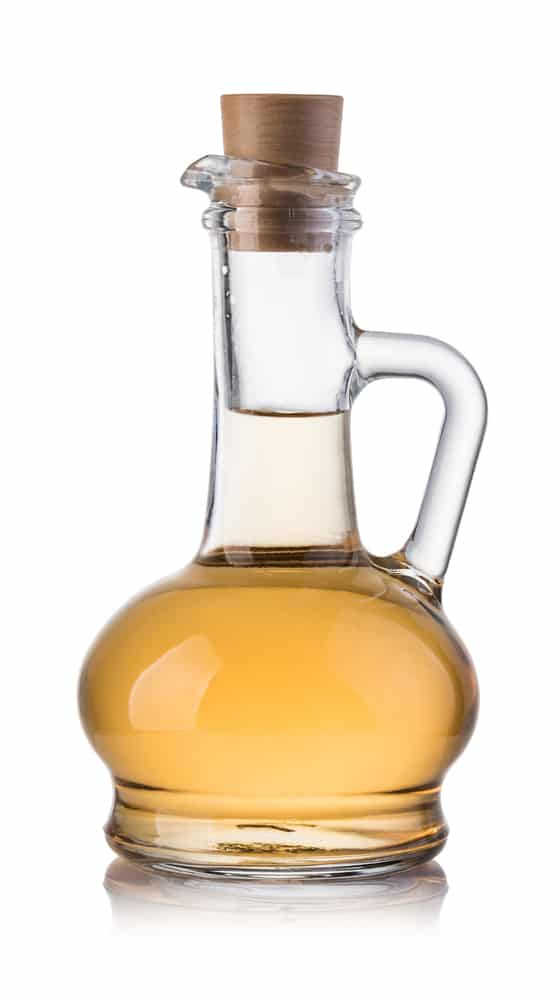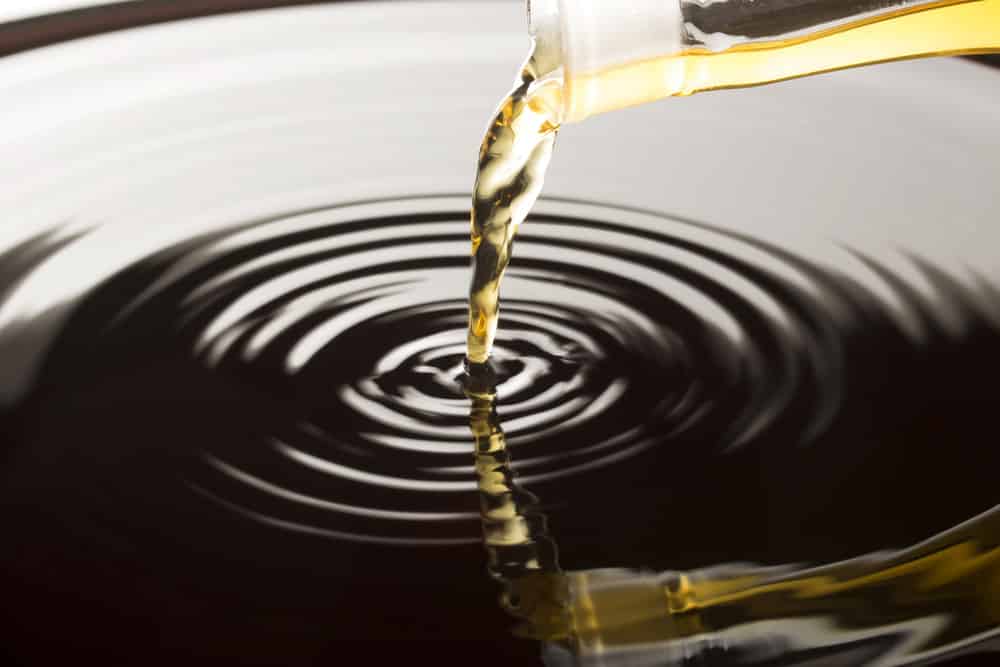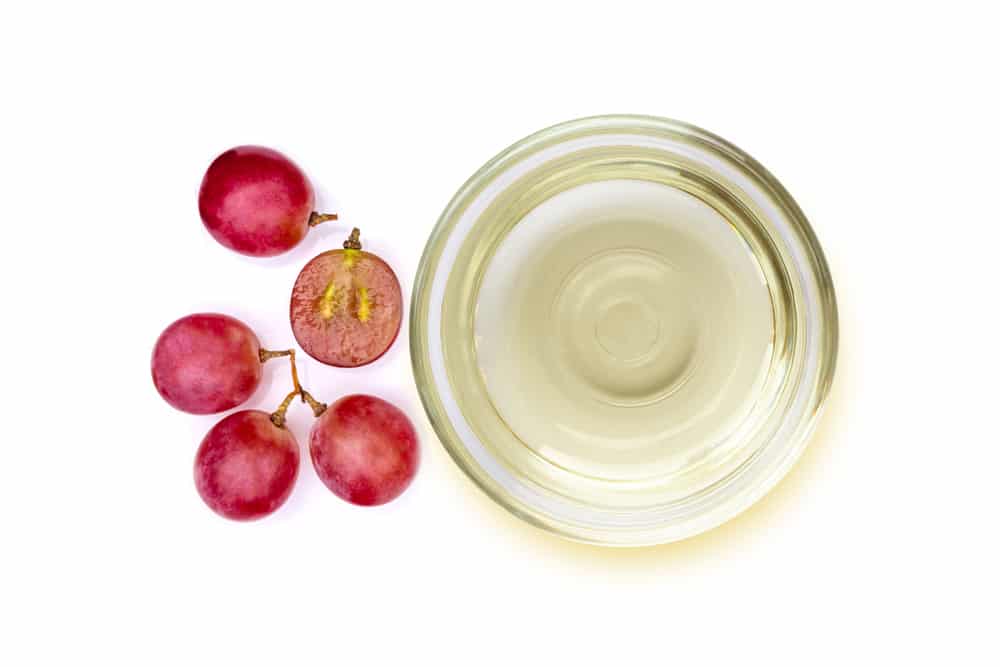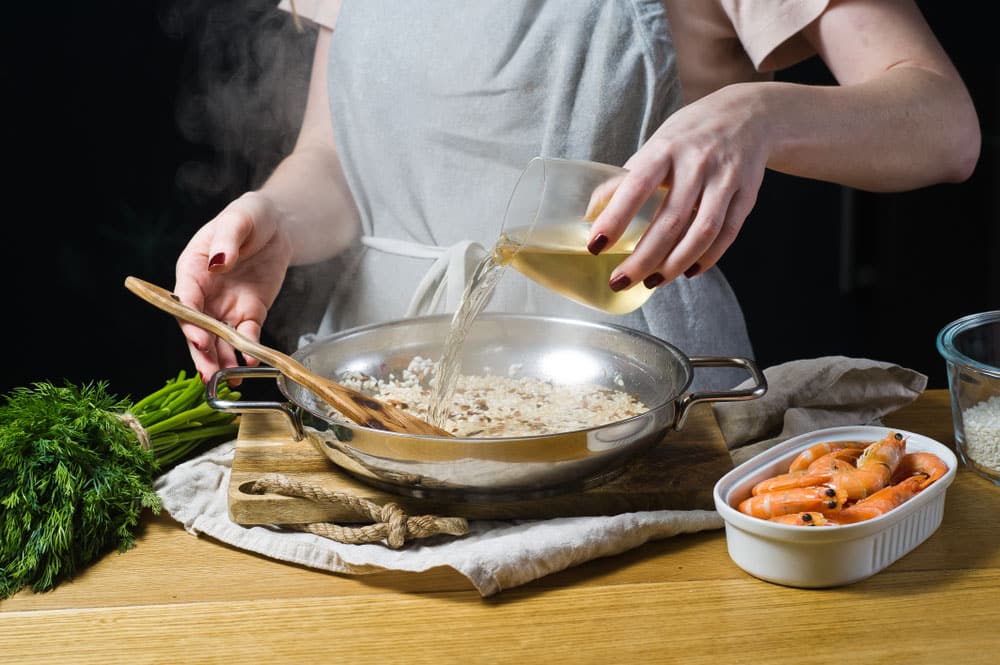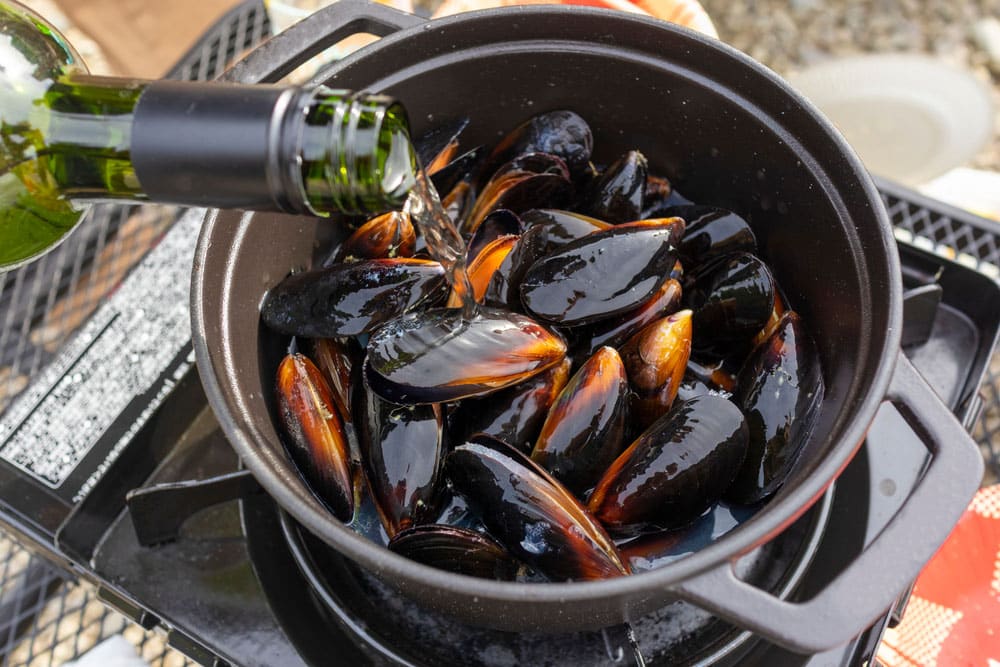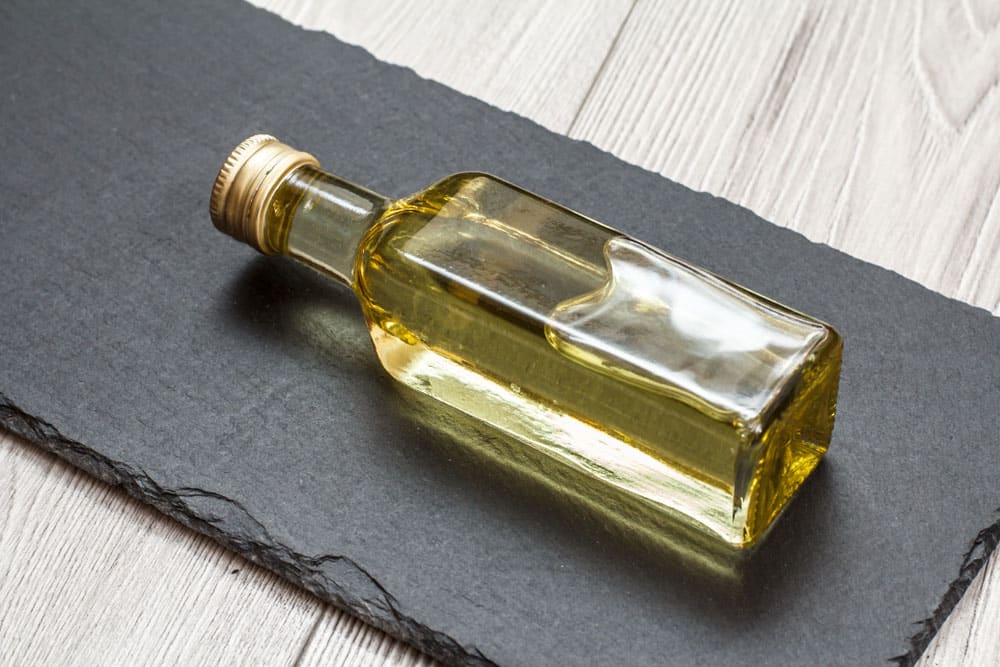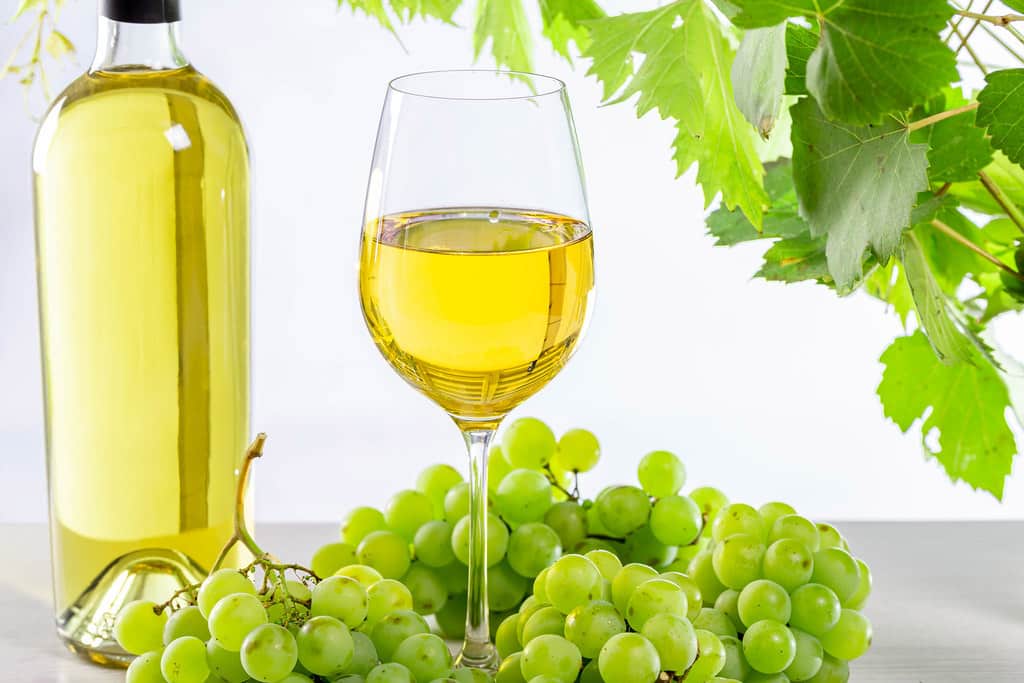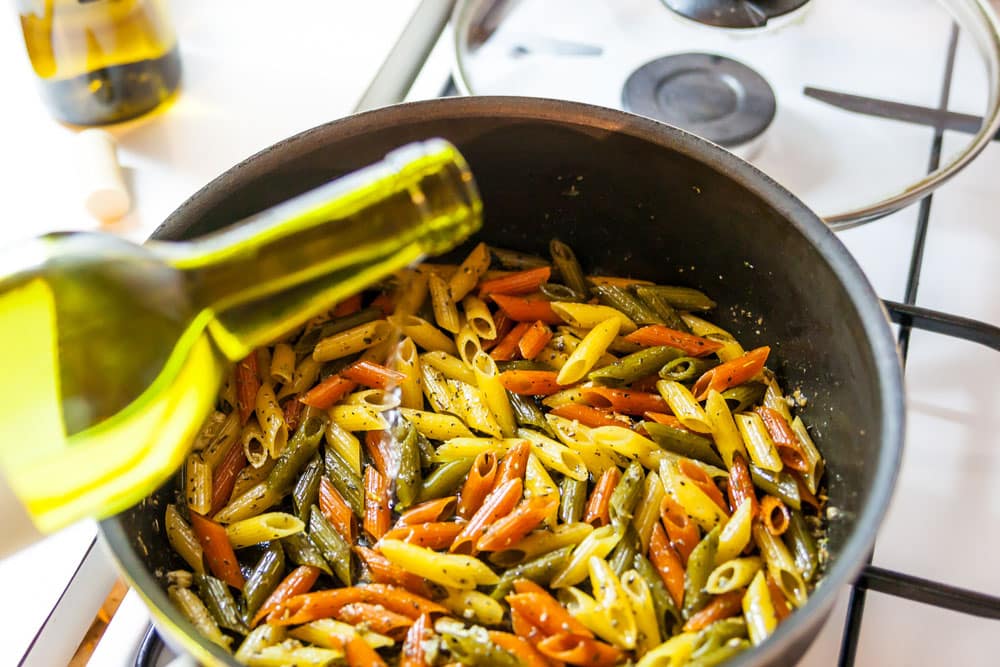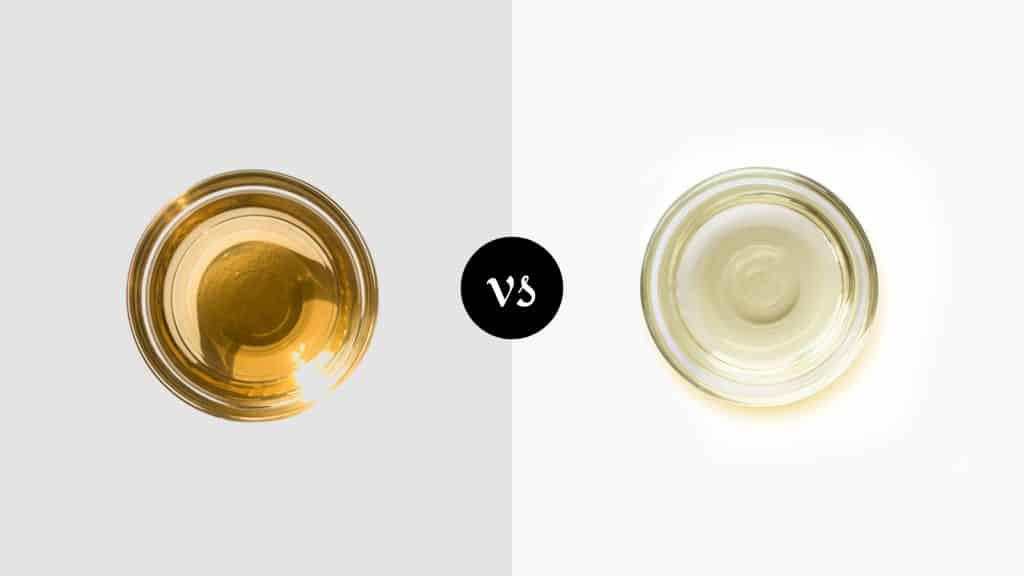
Cooking is an art but it’s become a form of science since there are so many ingredients and precise methodology involved. For the longest time, people have been cooking with vinegar and wines but the popularity just keeps increasing.
That being said, white wine vinegar vs. white cooking wine is something everyone ends up thinking about at some time. We’ll be sharing everything that you need to know about these two fantastic cooking ingredients so that you always know which one suits your upcoming meal to perfection.
White Wine Vinegar Vs. White Cooking Wine Comparison
| White Wine Vinegar | White Cooking Wine | |
|---|---|---|
| Composition | Fermented White Wine (Fermented Ethanol), Sugars, | Affordable Dry White Wine - Grapes, Calcium Carbonate, Tannins, Potassium Sorbate, Potassium Metabisulfite, Sulfur Dioxide, Sugar, Yeast, Grape Concentrate |
| Flavor | Slightly Acidic Mild Subdued Sweetness, Minimal Tanginess, Light Sourness | Sharp, Dry, Crisp With Mild Acidity, Low Sourness & Off Sweet Tangy Undertones |
| Suitability | Brining, Sauces, Salad Dressings, Brightening Flavors | Deglazing, Slow Cooker Meals, Enhancing Flavor, Tenderizing Food Without Flavor Loss - Poultry, Meat, Seafood |
| Benefits | Beneficial For Diabetes, Improved Overall Heart Healthy - Lowers Blood Pressure & Enhances Calcium Absorption | High Antioxidants, Slight Weight-Loss Benefits |
| Storage | Unopened - 2 Years In Cool Place, Sealed White Wine Vinegar Technically Lasts Indefinitely | Opened & Refrigerated - 6 Months | Unopened - Indefinitely | Opened & Refrigerated - 6 Weeks |
| Affordability | $7-$10 Per Bottle | $7-$12 Per Bottle |
| Availability | All Grocery Stores | Widespread Availability, Limited Stores |
| Substitutions | White Cooking Vinegar, White Spirit Vinegar, Champagne Vinegar, Cider Vinegar, Rice Vinegar, Red Wine Vinegar | Champagne Vinegar, Cider Vinegar, Rice Vinegar, White Wine Vinegar, Red Wine Vinegar |
| Considerations | Great Starting Point For Cooking With Acidity/Cooking Wine | Cook Until Alcohol Odor Dissipates For Full Flavor, Avoid Cheap, Sweet & Oaky Wines |
White Wine Vinegar Vs. White Cooking Wine
Interchangeable? Most definitely? The same flavor? Most definitely not. Our comprehensive comparison between white wine vinegar vs. white cooking wine covers all the similarities and differences so that you always know which to pick no matter what you may be making.
White Wine Vinegar
If you haven’t tried cooking with white wine vinegar yet, you’re doing yourself an injustice. No matter what type of cuisine you’re fond of, we’re sure white wine vinegar will arise in several cooking styles and recipes as a key ingredient.
Let’s take a closer look at white wine vinegar, what it tastes like and how to use it.
Composition
As we know, vinegar is made through the fermentation of various materials. White vinegar is derived from grain vinegar, and white wine vinegar is fermented and extracted from white wine.
White wine vinegar contains sugars and fermented ethanol, and it’s aged to reduce the acidic nature.
Flavor
White wine vinegar has a completely different taste from white vinegar, but it’s quite similar to white cooking wine, just lighter. Expect a light acidic flavor with low tanginess, medium sweetness, and minimal sourness.
There’s a tartness to white wine vinegar that brightens up soups and stews that is well-balanced by the ever-so-slight acidity and tangy fresh taste.
Suitability
White wine vinegar is the optimal choice for brining, thanks to the subdued sweetness and low acidity.
It’s also ideal for making classic sauces like Hollandaise, Chimichurri, Béarnaise and Beurre Blanc. Vinaigrettes come out great with white wine vinegar, and the ever-versatile compound is just as useful for brightening up flavors across all varieties of recipes, braised food, and roasts.
Benefits
According to current research, white wine vinegar has the capacity to reduce the progression of diabetes, making it one amazing ingredient. On top of everything, it also lowers blood pressure and enhances calcium absorption, which together leads to improved heart health.
Storage
White wine vinegar can be stored in a dark and cool place safely for up to two years without a significant change to its flavor. However, if the bottle is sealed, you can technically store it for as long as you want. Once opened, the white wine vinegar will stay usable for roughly six months.
Affordability
Most white wine vinegar is sold in 17-ounce bottles at an average retail price of between $7 and $10 per bottle, depending on the quality.
Availability
You’ll generally find white wine vinegar sold anywhere spirit vinegar is sold. This makes it readily available in all regular stores and online without any special store prerequisites normally being called for.
Substitutions
For the most part, white wine vinegar can be substituted with champagne vinegar, cider vinegar, rice vinegar, and red wine vinegar (the red one will have a strong flavor and might even add a darker color to the recipe).
As far as white wine vinegar is concerned, it can directly influence the recipe’s flavor, and every brand will have a taste difference. However, the basic flavor remains the same.
Considerations
If you don’t know which cooking wine to pick or have never cooked with a cooking wine before, we suggest starting with white wine vinegar.
It’s far more forgiving. If you don’t cook cooking wine to the right point, the taste of alcohol will spoil your meal, whereas white wine vinegar will simply need adjustment in most cases.
White Cooking Wine
Whether you’re making a creamy white wine sauce, deglazing after sauteeing, or freshening up the ocean flavor of steamed shellfish, white cooking wine is a delicious staple in many kitchens.
Composition
White cooking wine is nothing more than an affordable dry white wine. The only permissible compounds in white cooking wine are generally grapes, calcium carbonate, tannins, potassium sorbate, potassium metabisulfite, sulfur dioxide, sugar, yeast, and grape concentrate.
One needs to take care to pick out a wine that’s still of a reasonable quality because most wines marked for cooking can be loaded with compounds that you don’t want to eat or drink.
Look for preservatives, sweeteners, and added salt, and avoid any cooking wines that contain these or any other substances that aren’t normally in drinking wine.
We’d go as far as recommending that you rather shop for an affordable regular dry white wine to cook with instead of one that’s branded cooking wine. The quality will, in most cases, be much better.
Flavor
Expect a sharp, dry, crisp flavor from white cooking wine. Mild acidity and low sourness with off-sweet undertones carry a lingering saltiness and prevailing earthiness to its taste.
Alcohol’s essence and flavor dissipate completely when cooked, leaving brightness and a degree of tangy seasoning to whatever is being cooked.
Suitability
White cooking wine is a great choice for people who want to amplify a recipe’s flavor. It also tenderizes food without losing the flavor, and it’s suitable for poultry, meat, and seafood. Use white cooking wine for deglazing. Add it to meals to enliven flavors and increase acidity.
It’s a brilliant flavor enhancer for stews, sauces, and braised meals. Seafood and chicken love white cooking wine thanks to the sweetness and touch of sour it brings. Try adding white wine to slow cooker dishes to unlock a degree of sweet flavor that’s hard to get in any other way.
Benefits
While not added specifically to fortify food with nutrition, white cooking wine does supply some weight loss benefits due to the healthy concentration of antioxidants. This being said, cooking wine adds either savoriness or sweetness to a dish.
Pick a sweet white cooking wine, and it’ll caramelize into a toasty, sweet flavor, whereas sharp wines fortify tastes with savory richness and brighten up existing components of a dish. The only wines that you should avoid are oaky whites as their flavor cooks to bitterness quickly.
Storage
White cooking wine tastes fine for six weeks once you’ve opened the bottle because the bottles are designed with airtight bladders in place. Unopened wine lasts indefinitely but begins to experience a noticeable change in its flavor profile from roughly two years of aging.
Affordability
Most high-quality brands of white cooking wine retail for between $7 and $12 per 12 to 16-ounce bottle.
Availability
Not all stores stock cooking wine. Most large supermarkets will keep it in stock, and online retail giants like Amazon have a good range available but cooking wine still isn’t something you’ll find everywhere.
Substitutions
The best substitute for cooking white is crispy, dry wine. However, the best alcohol-free substitute for cooking wine is white wine vinegar.
Alternatively, opt for regular vinegar, white grape juice, apple juice, apple cider vinegar, or chicken broth if no cooking wine or its top substitute is available.
Considerations
While you are cooking with white cooking wine, make sure that the alcohol smell goes off once cooking is done.
A simple rule of thumb to keep in mind is that you should only use this wine if you are willing to drink it because different white wines each have different flavors. Some are sweeter, while others are more on the bitter side.
Last but not least, you should only buy the high-quality white cooking wines because the cheap ones will have an extremely bitter taste that will ruin your dish and make it too salty, tangy, or off-putting.
Which Is Better Between White Wine Vinegar Vs. White Cooking Wine?
One has to be careful regarding which brand you choose. As far as white wine vinegar is concerned, it can directly influence the recipe’s flavor, and every brand will have a taste difference. The base flavor is the same, but the balance is different.
White cooking wine generally delivers a fine balance of sweetness and acidity while adding depth of flavor. When the alcohol is cooked away properly, the flavor produced is generally better.
Ultimately, the winner between white wine vinegar vs. white cooking wine depends on the taste you’re looking for. We suggest experimenting with both and a variety of good, crispy white wines.
